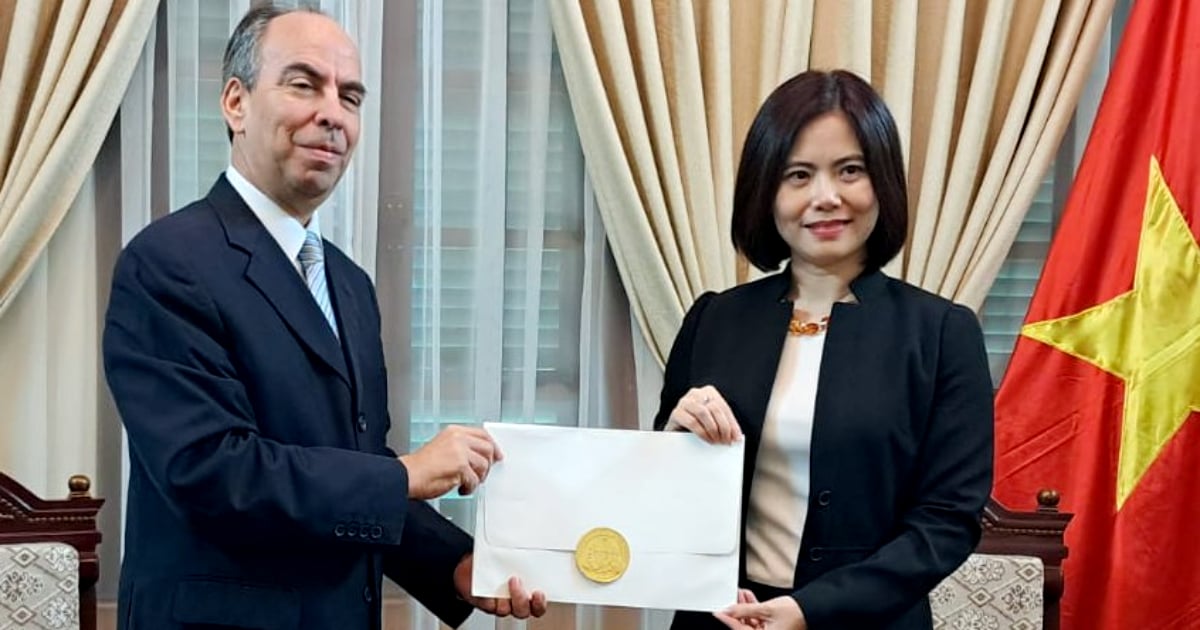The Cuban government has made a startling decision, removing Rogelio Polanco Fuentes from his role as the Ideological Chief of the Communist Party and appointing him as the ambassador to Vietnam. This unexpected shift has not been clarified by Miguel Díaz-Canel, the First Secretary of the Communist Party of Cuba (PCC) and the direct overseer of the ideological department in Cuba's sole legal party.
On Thursday, the Cuban Ministry of Foreign Affairs released a brief statement confirming Polanco's new appointment: "The newly appointed ambassador of Cuba to Vietnam, Rogelio Polanco Fuentes, today presented the style copies of his credentials to Vu Hoang Yen, the Deputy Director of Protocol at Vietnam's Ministry of Foreign Affairs."
Polanco, the architect behind the "continuity" propaganda, took to social media to announce his diplomatic mission, expressing appreciation for the reception by Vietnamese authorities. "Honored to present style copies to the Deputy Director of Protocol Vu Hoang Yen as Cuba's designated ambassador to the Socialist Republic of Vietnam. I reiterated our commitment to deepening our cherished brotherhood and the historic diplomatic ties between Cuba and Vietnam, which will celebrate their 65th anniversary in 2025," he stated.
A Career in Political Strategy and Diplomacy
With a degree in international political relations, Polanco began his career at the Cuban Ministry of Foreign Affairs (MINREX). He also served in the National Secretariat of the FEU and the National Bureau of the UJC and led the state-run media outlet Juventud Rebelde for 12 years. In August 2009, he was appointed ambassador to Venezuela, a position he held for a decade before returning to Cuba to become the rector of the Institute of International Relations "Raúl Roa García."
Since 2013, Polanco has been a member of the PCC's Central Committee, and in 2021, he joined its secretariat. That year, Díaz-Canel succeeded Raúl Castro as the party's first secretary, while Polanco was instrumental in crafting the regime's narrative.
From Ideological Leadership to Diplomatic Service
As head of the PCC's Ideological Department, Polanco was present during Díaz-Canel's ascendancy to power in April 2018. He is believed to be a key figure behind the "continuity" slogan, which aimed to disguise the regime's autocratic succession. His office, a hub for controlling official press and palace communicators, likely sanctioned various propaganda efforts, including "creative resistance" and slogans like "Cuba is Love" and "Cuba Advances and it Hurts."
The gap between the Cuban populace and its leadership has widened, as the official press and propaganda have hit all-time lows. Polanco's rhetoric, alongside Díaz-Canel's, has reached new heights of absurdity and hypocrisy.
Challenges and Controversies
In January 2022, Polanco emphasized the need to "regenerate the country's soul" in a meeting with university students and intellectuals in Sancti Spíritus. He stressed the importance of reinforcing education through values, which he claimed were under threat from harmful social media influences.
Faced with a burgeoning civil society and movements like the 27N and San Isidro, as well as the spontaneous July 11, 2021 protests, Polanco accused the United States of orchestrating a November 15 march. "The U.S. government is the true organizer and promoter of the provocation planned for November," he declared, dismissing it as an act of subordination to American hegemony.
In February 2023, during one of his final statements as the regime's chief ideologue, Polanco called for "taking back social media from the enemy." In an interview, he likened this struggle to Cuba's historical fights for independence, suggesting that the regime should master social media to further its objectives.
With his mission deemed a failure and the regime's narrative discredited, Polanco has now settled in Hanoi, where he will oversee the future course of events, including managing donations, fostering friendship, and denouncing the "genocidal blockade." The successor to his former role in the regime's outdated propaganda machine remains unknown.
